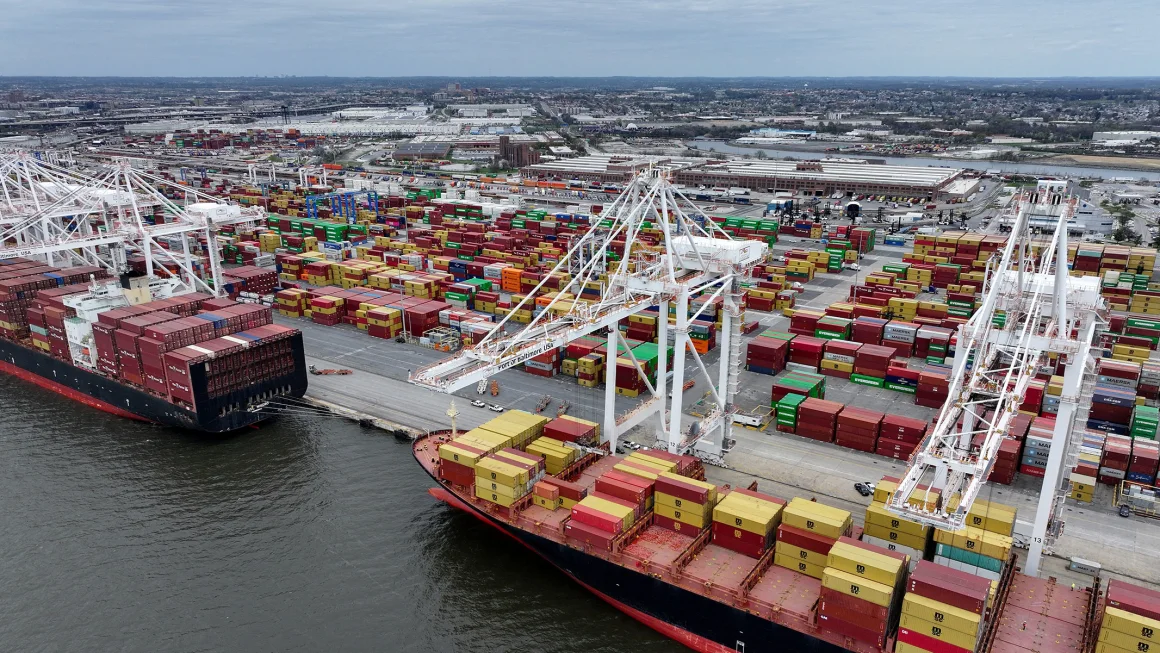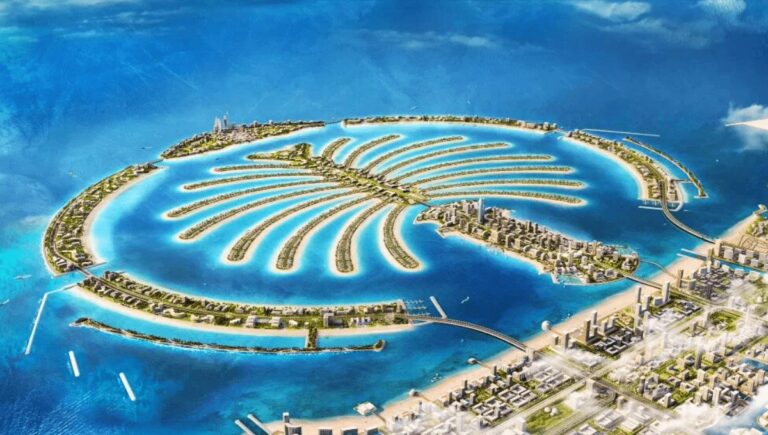
US-China Trade War: Trump’s New Tariffs Shake Global Markets, Impact Dubai and US Businesses
China has vowed to retaliate after former US President Donald Trump announced sweeping new tariffs on Chinese exports to the United States, marking a bold shift in American trade policy.
Trump introduced 54% tariffs on all Chinese imports to the USA, intensifying tensions between the two largest economies. The move is expected to disrupt global trade networks, with potential ripple effects reaching Dubai, a key international trade hub.
China Responds to US Tariffs
Beijing strongly condemned the move, with China’s Ministry of Commerce stating that it would take countermeasures to protect its economic interests. The ministry criticized the US tariffs as a “unilateral bullying tactic” and urged Washington to engage in fair trade negotiations.
“The United States has imposed these so-called ‘reciprocal tariffs’ based on subjective assessments, violating international trade rules and hurting global markets,” the statement read.
Trump’s latest decision adds 34% “reciprocal” tariffs on top of existing 20% duties on Chinese goods entering the US. This follows two previous rounds of 10% tariffs imposed by his administration to curb illegal fentanyl imports from China.
Economic Impact on Dubai and Global Trade
Dubai, a major trade and logistics hub between Asia, the Middle East, and the US, could feel the impact of the ongoing US-China trade war. The Jebel Ali Free Zone (JAFZA) and Dubai International Financial Centre (DIFC), which facilitate international business and supply chains, may see shifts in trade flows as companies seek alternatives to Chinese imports.
Many multinational corporations operating in Dubai rely on goods sourced from China and exported to the USA. With the sharp increase in tariffs on Asian imports, businesses in Dubai’s free zones may have to adjust their supply chain strategies to stay competitive.
US Businesses and Supply Chains Under Pressure
Business leaders across the United States have expressed concerns over the unexpectedly high tariffs, which could reshape US-China trade relations.
Ben Schwall, a supply chain consultant based in the USA, highlighted the challenges faced by American companies due to sudden policy changes.
“I wish we had more long-term economic planning to understand what’s coming next,” he said.
Meanwhile, Greg Mazza, a Connecticut-based business owner, warned that American consumers might struggle to absorb rising product costs, as companies face higher import duties.
Shifting Trade Strategies: Dubai’s Growing Role
As Chinese manufacturers look for alternative export markets, Dubai could emerge as a key player in diversified global trade. Many Chinese companies have already started expanding operations in the UAE, leveraging Dubai’s strategic location to access markets in Europe, Africa, and the Middle East.
With rising tariffs on Asian exports to the US, businesses are looking to Dubai as a reliable gateway for international trade. The city’s advanced logistics infrastructure, including Jebel Ali Port and Al Maktoum International Airport, provides opportunities for companies to bypass trade restrictions and explore new distribution channels.
Future of US-China Economic Relations
While the US continues to tighten its trade policies, China is actively working to strengthen partnerships with global markets.
Jason Hsu, a senior fellow at the Hudson Institute, predicts that countries like Japan and South Korea may reevaluate their trade relations with the US, potentially increasing their cooperation with China.
At the same time, China is diversifying its markets, shifting exports toward Europe, Latin America, and Africa, rather than relying solely on the US market.
Conclusion
The US-China trade war is reshaping global supply chains, impacting businesses in the USA, Dubai, and beyond. As tariffs increase, companies are rethinking their trade strategies, with many looking to Dubai’s business-friendly environment for stability.
With ongoing US-China tensions, the UAE’s economic landscape may benefit from companies seeking new trade routes, reinforcing Dubai’s role as a global trade powerhouse in the coming years.
Source : Khaleejtimes

